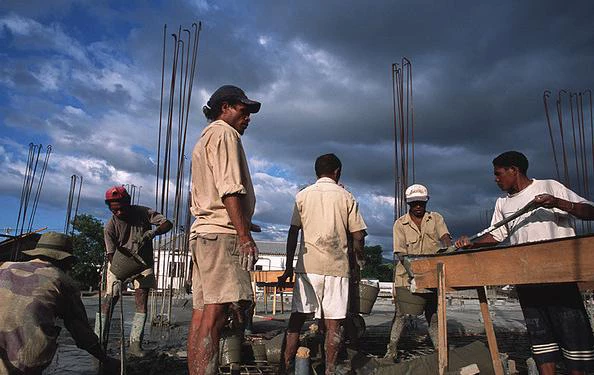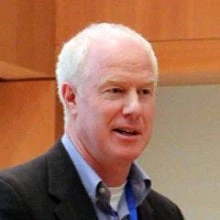
One can easily oversimplify differences, or render them more rigid that they often are, but answers to each of these questions can be usefully juxtaposed. The key issue is both simple and profound: What do we think ‘development’ actually is? Since the inception of the Bretton Woods institutions in the aftermath of WWII, answers to this question have steadily evolved, responding to and driving significant changes in practice. Traditionally, however, and for many still today, the core business of development is the construction of systems – building the physical and institutional infrastructure that defines a ‘modern’ economy and society. When we say that France is ‘more developed’ than Gabon, we mean, inter alia, that France’s economic wealth is based on productivity growth, that its political life reflects the prevailing preferences of its citizens, that its society (at least in principle) confers equal rights, responsibilities and opportunities to all, and that administrative procedures are conducted in accordance with rational rules, consistent precedents and professional meritocratic norms.
This is the vision of what we might call Big Development. Facilitating this four-fold transformation requires wholesale investments in roads, ports, agriculture, education, justice, finance and public health—and, crucially, the corresponding government ministries to plan, fund, implement and assess it all. Even if governments don’t actually provide these services, they are inescapably responsible for them; and while the state may be ‘weak’ today, the core development task is to steadily enhance its capability tomorrow, since modern life requires organizations to perform tasks that are ever more complex, logistically and technically. The private sector, of course, will also be a major part of this process, but to function effectively markets too require a coherent package of consistent and legitimate institutional arrangements ensuring that the interests of elites, entrepreneurs and everyday citizens align. This was how the poor countries of South Korea, Botswana and Chile circa 1962 steadily became the more prosperous, democratic and inclusive countries of South Korea, Botswana and Chile circa 2012, and how Western countries before them did likewise (albeit over a much longer time frame). In short, Big Development seeks to build national systems, takes a medium-run and holistic view of the change process, and measures its success (or lack thereof) against societal benchmarks.
In recent years, however, a rather different view of development has emerged, one which we might call Small Development. Inspired less by transformational visions of entire countries and more by the immediate plight of particular demographic groups (AIDS orphans, child soldiers, ‘the poor’) living in particular geographic places (disaster zones, refugee camps, urban slums), Small Development advocates focus not on building systems in the medium run but on compensating for the failure of systems in the short run. ‘Development’ thus becomes an exercise in advocacy, in accurate targeting, in identifying particular ‘tools’ that ‘work’ (but where the criteria for actually assessing this is inherently loose). Progress is thus measured by enhancements in the welfare of individuals (i.e., those people that are the particular targets of concern), and the attainment of ‘development’ is determined by aggregating these individual measures to larger (but arbitrary) units of analysis, such as cities, countries or regions. The moral animus driving Small Development is the real and present ‘needs’ of the groups in question; building ‘systems’ is all well and good, advocates contend, but it’s slow, imprecise, indifferent to context, prone to corruption, and in the meantime people are dying. We need to act now! For critics of Small Development, however, such activities amount to little more than ‘charity work’; it is noble and laudable work, to be sure, and is certainly difficult and often dangerous, but its net transformational effects are, well, small. Poor, marginalized individuals may have become less poor (or more ‘empowered’) individuals as a result of such efforts, but it’s not how any poor, autocratic and divided country became a prosperous, democratic and inclusive country.
These two visions of development are not incompatible, and reasonable people can cast their lot with either one. But the distinction between them matters and has significant consequences for how priorities are assigned, how resources are allocated, and difficult decisions are made. Moreover, it is clear that the World Bank’s history, mandate and comparative advantage lies more with one vision than the other. It is the task of the future president to appreciate this difference, to respect this history, and to harness the strengths of both approaches while recognizing and mitigating their real weaknesses.


Join the Conversation